Table of Contents
Homeowners wishing to sell may be wise to do so before the next general election, according to new research published by estate agent Winkworth.
While we don’t yet know when this will happen, those considering a move may be concerned that any policy changes or general uncertainty could affect their plans.
The study, carried out by analysts Dataloft, looked at changes in house prices before and after the previous seven general elections, in areas where Winkworth has offices.
This includes Greater London, the South East, the South West, East Anglia and Northamptonshire.
In these regions, the study found that house price growth was more likely to decline than increase in the three months following the country’s elections.
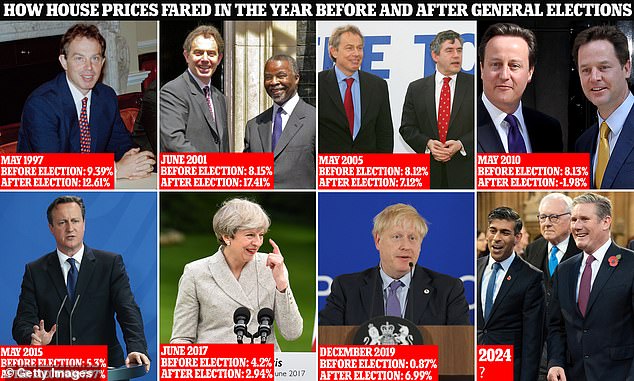
All photos from Getty Images: Credit top left to right – Photo by Colin Davey. Anthony Harvey, Scott Barbour, Matt Cardy. From left to right – photo by Sean Gallup, Mustafa Yalcin/Anadolu Agency, Nicolas Economou/NurPhoto and Stefan Rousseau
Looking at the last election in 2019, the study found that the so-called ‘Boris bounce’ in the property market after the last general election failed to bear fruit.
In the three months leading up to the December 2019 election, where Johnson’s opponent was Labour’s Jeremy Corbyn, average prices in the UK rose by 4.2 per cent.
However, in the three months following the election, average prices increased by only 0.7 percent. In central London, prices fell by 9.4 per cent in the three months after Boris’s election.
Dominic Agace, chief executive of Winkworth, said: “The effect of a general election is to distract people in the three months leading up to polling day.
“Politicians push policies to win votes, and politics can be more extreme than the reality of what happens once a party is in power.”
Prices rose by almost the same percentage before Tony Blair’s victory in 1997, 4.4 percent, only to fall to 1.7 percent in the three months that followed.
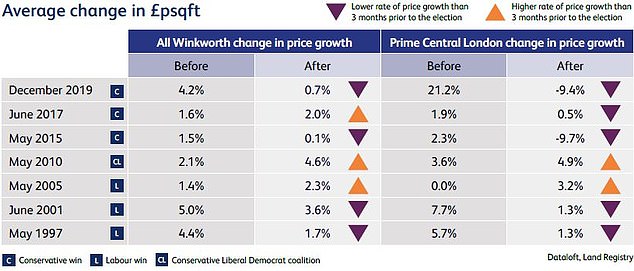

The study looked at changes in house prices for three months before and after the last seven elections in London, the South East, South West, East Anglia and Northamptonshire.
House price growth also slowed after the 2001 election, when Blair won again, and in 2015, when David Cameron’s Conservatives were handed sole control after five years in coalition.
However, in the 2005, 2010 and 2017 elections, prices increased more quickly over the following three months.
In the three months before each of the last seven elections, the average price per square foot increased a total of 20.2 percent, Winkworth said.
Meanwhile, in the three months after the election, the price per square foot increased by 15 percent when added together.
Winkworth experts say this mixed picture suggests that elections may not be the main driver of price action – and that “waiting to put a property on the market until after an election, in the hope of “obtaining a much higher price could be a risky strategy.” .
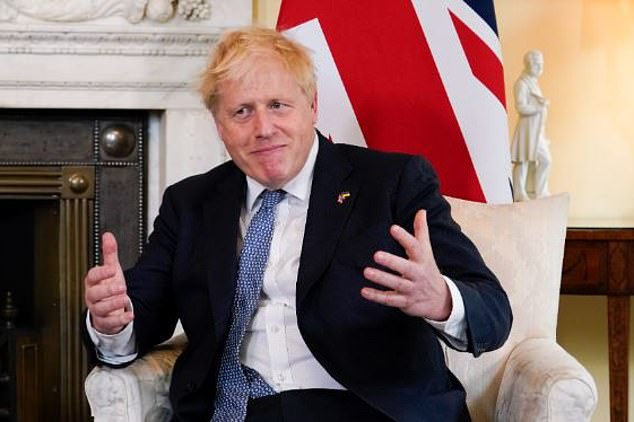

Boris’s dip? Study reveals Boris’s so-called rebound in property market after last general election failure
The data, based on land registry figures, has certain limitations. Land register data is based on sales prices and may therefore relate to sales agreed months before they appear in the register.
This means that homes sold within three months of an election may have been agreed upon before the election, and homes sold prior to the election may have been agreed upon up to six months or more before the election.
What does the UK-wide house price data say?
We decided to look at the Land Registry figures for the whole of the UK and look at how prices have changed in the years before and after the previous seven general elections.
These figures include homes sold across the whole of the UK, not just in the south of England.
This analysis suggests that house prices are more likely to perform better after an election than before.
Taking into account each year preceding the last seven elections, house prices collectively increased by 44 percent, which equates to an annual average of just over 6 percent for each year preceding the general election.
However, each year after the last seven general elections, house prices have collectively increased by 53 per cent, equating to an annual average of just over 7.5 per cent.
Ultimately, house prices are more likely to be influenced by other factors than the general election.
For example, in the year following Boris Johnson’s election in December 2019, house prices across the UK increased by 6.99%.
Rather than being due to the Boris bounce, this is more likely due to the stamp duty holiday which began in July 2020 – alongside the space race and the moving boom which began during the pandemic.
Are elections slowing real estate market activity?
In addition to changes in house prices, Winkworth’s analysis also found that pre-election uncertainty has the short-term effect of slowing the number of sales in the three to four months leading up to Election Day. ballot.
This trend was found to be true for six of the last seven elections.
Once the election result is known, the increased certainty about the political landscape and policies will normally allow markets to regain momentum.
However, the Dataloft report also suggests that the time of year could have more impact than whether there is a general election.
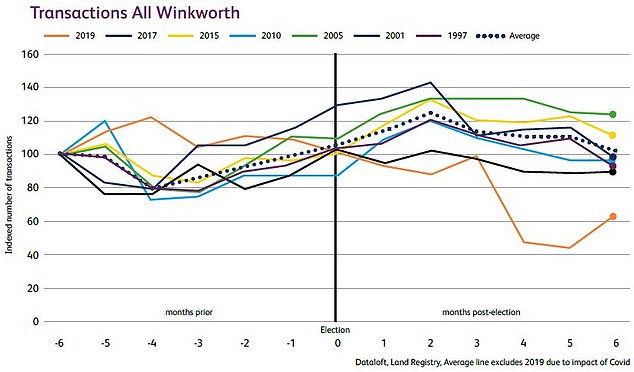

Transaction successful? Pre-election uncertainty has a short-term impact, slowing the number of sales in the three to four months leading up to Election Day.
Postponing selling or buying a home until after the election could mean missing the best time of year on the real estate calendar, with spring typically being the best time for home sales.
The report reveals that over the last five years (excluding 2020 due to Covid), 27% of sales took place in spring, the highest of any season, according to HMRC figures.
Over the same period, properties took on average just 51 days to sell, compared to 61 days in winter.
Are the upcoming elections already affecting the market?
Jeremy Leaf, a north London estate agent and former chairman of Rics Residential, believes the uncertainty that comes with the election is still causing some people to delay buying or moving.
However, as the election approaches, he has yet to notice people changing course – probably because the date has not yet been announced.
“The election has been a factor in home buying and selling decisions because it tends to create uncertainty, especially as we get closer to the due date,” Leaf says.
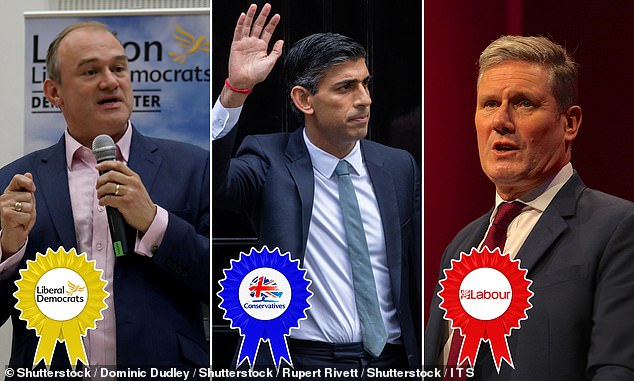

Ed Davey (left), Rishi Sunak (middle) and Sir Keir Starmer (right) will want their party to be seen as the best choice for homeowners, first-time buyers and renters.
“If the bookies are to be believed and there is a change of government, the statements made so far by Labor have indicated a pro-business and particularly construction-friendly strategy, which if implemented implemented, will probably only benefit the housing market in terms of improving the number of transactions, or even prices.
“On the contrary, it is likely the higher value transactions and high net worth individuals who are most likely to be hit with taxes rather than the more mundane transactions, which make up the overwhelming majority of those taking tax action . place.
“However, we have not noticed a decline in inquiries or interest from UK or overseas investors in purchasing UK property in recent months, and we do not expect this that this changes, even if they proceed cautiously without taking these elements into account. too much potential gain.
“Most people don’t wait or change their minds and wait for the outcome of the election, although that could change as the date approaches.”
Sam Mitchell, managing director of online estate agent brands Strike and Purplebricks, says there is a risk that as the election approaches, people will start to put their plans on hold until after the results.
This situation could be exacerbated if each party started making commitments on housing, for example by promising to reduce stamp duty or capital gains tax.
“We expect a window of positivity between now and the general election where the market remains strong, with house prices continuing to rise month-on-month and an uptick in buyer demand,” says Mitchell.
“In light of inflation falling faster than expected and the expectation of rate cuts starting to be priced in from June, we can be optimistic about property market activity in the months ahead .”
Some links in this article may be affiliate links. If you click on it, we may earn a small commission. This helps us fund This Is Money and keep it free. We do not write articles to promote products. We do not allow any commercial relationships to affect our editorial independence.



